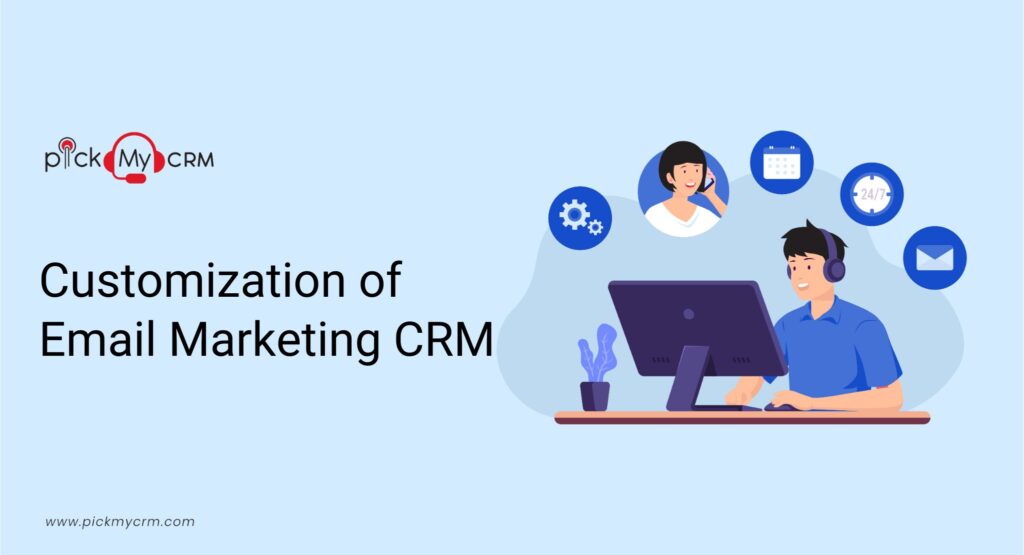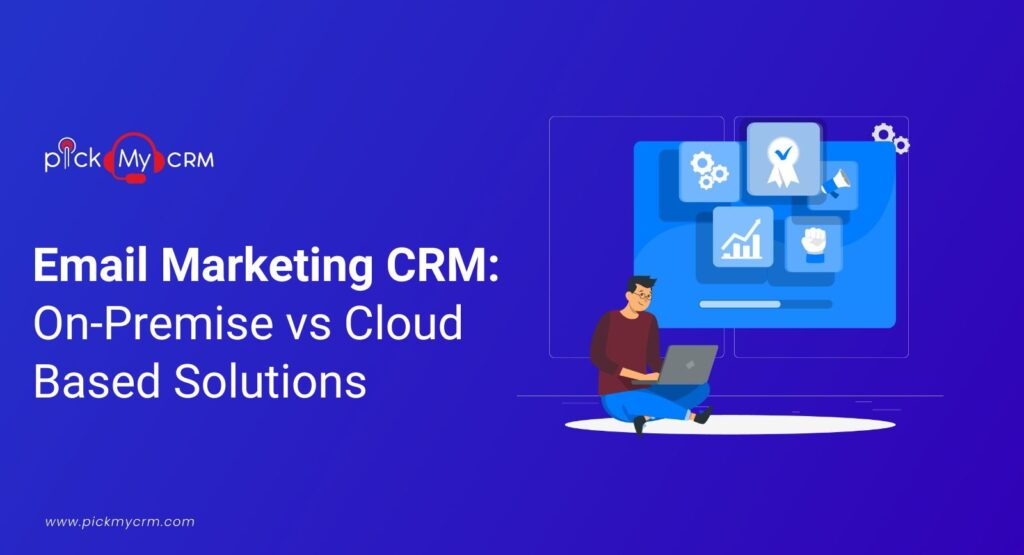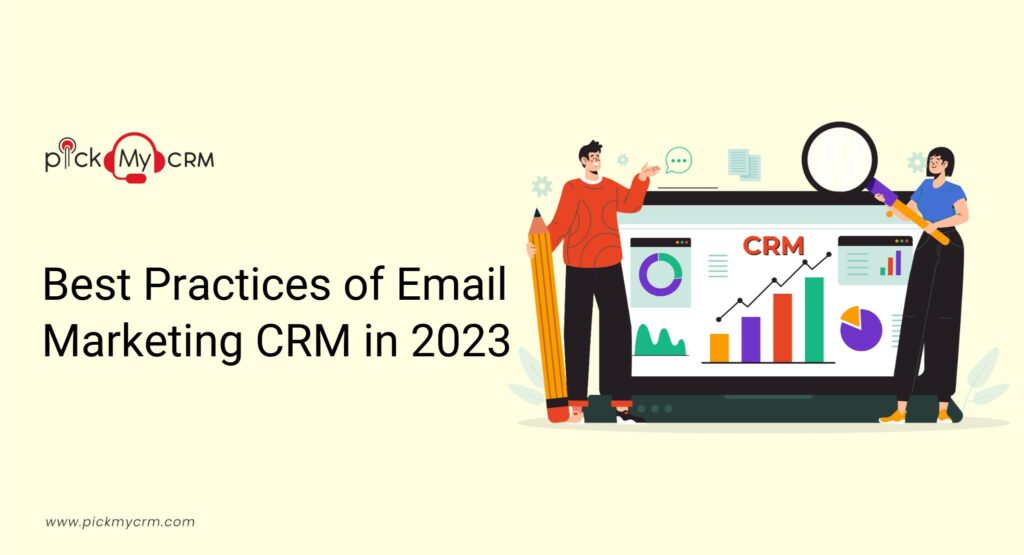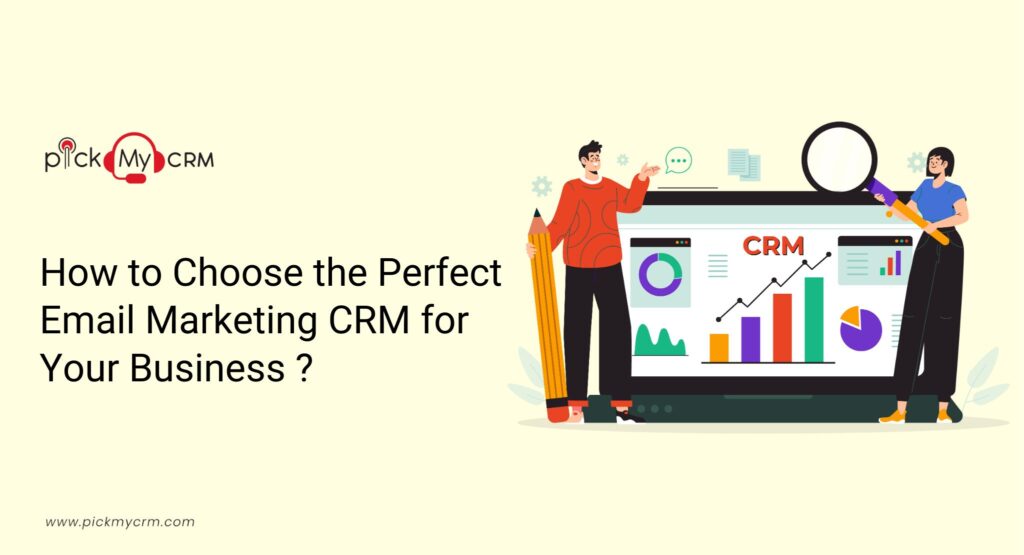Customization of Email Marketing CRM: Tailoring Your Strategy for Success

What is CRM in Email Marketing?
At its core, Customer Relationship Management (CRM) in email marketing is a strategic approach that involves the management and analysis of interactions between a business and its customers. It serves as an organizational backbone, facilitating the seamless tracking of customer behaviors, preferences, and engagement patterns. By leveraging CRM, marketers gain valuable insights into the customer journey, enabling them to curate tailored email campaigns that speak directly to individual needs and desires.Email Marketing CRM Customization: Unleashing Potential
Email marketing CRM customization embodies the art of sculpting a generic marketing strategy into a finely tuned instrument of engagement. This process involves configuring your CRM software to align with your brand identity, customer personas, and overarching marketing goals. By doing so, you transform mundane email interactions into meaningful touchpoints that foster genuine connections.- Segmentation and Personalization: The cornerstone of effective customization lies in meticulous segmentation and personalization. Break down your audience into distinct segments based on demographics, purchase history, and behavior. Crafting personalized emails that address specific pain points or showcase relevant products demonstrates your commitment to understanding your customers on a granular level. According to Statista, personalized emails can generate a 29% higher unique open rate compared to non-personalized counterparts.
- Tailored Content Creation: A generic, one-size-fits-all approach has no place in the realm of email marketing CRM customization. Craft compelling and diverse content that resonates with each segment. Employ a mix of informative articles, visually appealing product showcases, and interactive elements to captivate your audience's attention.
- Automation and Workflow Optimization: Capitalize on automation to streamline your email marketing processes while maintaining a personal touch. Develop automated workflows triggered by specific actions, such as abandoned cart reminders or post-purchase follow-ups. This not only enhances efficiency but also ensures timely and relevant interactions. A study by Epsilon found that automated emails have a 119% higher click rate compared to non-automated emails.
- Branding Consistency: Your email communications are an extension of your brand's identity. Customize email templates with your logo, color palette, and typography to create a cohesive visual experience. Consistency across all touchpoints fosters brand recognition and instills a sense of professionalism.
How Do I Customize My Email Marketing CRM?
Customizing your email marketing CRM may seem like a daunting task, but with a systematic approach, it becomes an exciting opportunity for creative expression and strategic prowess. Here's a step-by-step guide to get you started:- Define Your Objectives: Outline clear and measurable objectives for your email marketing campaigns. Whether it's boosting sales, increasing website traffic, or nurturing leads, having well-defined goals paves the way for effective customization.
- Gather Data: Knowledge is power. Collect relevant data about your customers' preferences, behaviors, and purchase history. Leverage this information to create tailored segments and craft personalized content.
- Select a CRM Platform: Choose a CRM platform that aligns with your needs and budget. Popular options include HubSpot, Salesforce, and Mailchimp. Ensure the chosen platform offers robust customization features and integrates seamlessly with your existing tools.
- Segment Your Audience: Divide your audience into segments based on common traits or behaviors. This segmentation forms the basis for targeted content creation.
- Design and Content Customization: Customize email templates with your brand elements, and create compelling content tailored to each segment. Incorporate dynamic elements like product recommendations and countdown timers for added engagement.
- Automation Setup: Develop automated workflows that cater to various stages of the customer journey. Set up triggers for emails based on actions like sign-ups, purchases, or cart abandonment.
- Testing and Optimization: Continuously monitor the performance of your email campaigns. A/B tests different elements such as subject lines, CTAs, and sending times to optimize engagement and conversions. According to a report by Litmus, A/B testing emails can lead to a 20% increase in email open rates.



